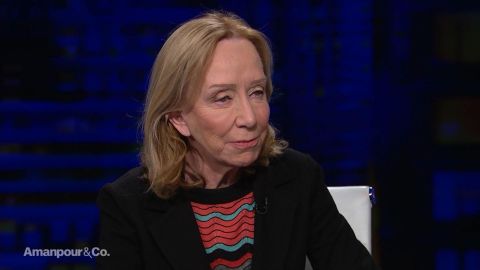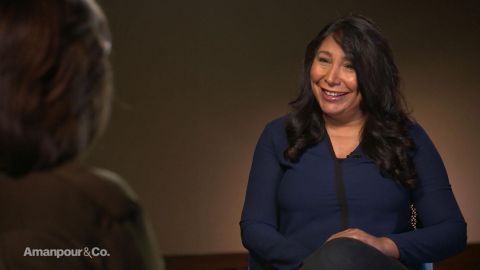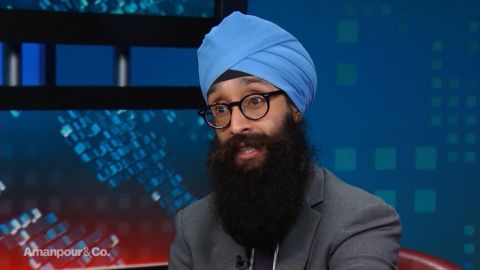Read Transcript EXPAND
CHRISTIANE AMANPOUR: You talked about leaders and the different eras. And many people are asking now, do we get the leaders for our time or does the time — you know, or is it backwards? Is it inevitable that at that time, Teddy Roosevelt came to power, Franklin Roosevelt, you know Lyndon Johnson, and today, Donald Trump?
DORIS KEARNS GOODWIN, PRESIDENTIAL HISTORIAN: I think what happens is the time creates an opportunity for a great leader to come along. And usually, crisis is one. Think about what Lincoln had to face when he comes into office and this country is already split apart, nearly 600,000 people are soon to die and yet he was the right leader for that time. Patient and persistent, merciful and merciless, and somebody who could bring into his tent the people who are more experienced than he. Teddy Roosevelt comes about at a time when the industrial revolution has shaken up the economy more than today, when there’s a gap between the rich and the poor, the workers or capitalists are at each other’s throats. There’s a fear that capitalism isn’t going to be able to exist. And what does he do? He introduces square deal. He’s a fighting character. He makes people feel he’s on their side. But the square deal was for the rich and the poor. And the capitalist and the wage worker, not for one side. FDR comes in at the height of the depression. And because he had gone through his own depression, his own paralysis because of polio, he had emerged more warm-hearted, much more able to empathize with other people to whom faith had been dealt an unkind hand and he had that confident optimism that he could project onto the country at large. LBJ comes in when the civil rights movement is one of the most important issues at the time. The bill is stuck in the Congress, they never through it would come out. The civil rights movement is becoming more beset by troubles. And his legislative wizardry gets that bill through. So, they opened an opportunity for these people, but unless you can deal with it. Hoover was there when the depression was there, he couldn’t deal with it. McKinley was there at the industrial revolution. And Buchanan, the worst president in our history until the most recent historians’ poll — put Mr. Trump on the bottom, he was unable to deal with the secession that was happening during the 1850s.
AMANPOUR: And yet, Mr. Trump comes along with many certainly of traditional White workers are — and it does seem to be mostly them, are very concerned about, not only their place in American society, but also their place in the workplace. The decline of America’s role as the sole industrial superpower.
GOODWIN: You know, I think the workers and the people who voted for Mr. Trump fail to sense that America was passing them by, much as people felt at the turn of the 20th century when the industrial revolution had changed so much of the economy and the society. Even then, there were all these new inventions that made the pace of life too big, telephones, telegraphs, et cetera. And now, suddenly, this is what people were feeling before this election and he seemed to make them feel he was on their side, that somehow, he was angry as they were at the elites, he was as angry as they were at the plants being taken away. And the problem is, that’s fine for campaigning, and you have to give him credit. He won the election because of that. But once you become president, you have to be a president of all the people, you have to reach out to all sides.
About This Episode EXPAND
Christiane Amanpour interviews Doris Kearns Goodwin, U.S. Presidential Historian and Pulitzer Prize-winning author whose most recent book is “Leadership: Lessons from the Presidents for Turbulent Times;” and Haifaa al-Mansour, director of “Nappily Ever After.” Hari Sreenivasan interviews Prabhjot Singh, Director, Arnhold Global Health Institute and author of “Dying and Living in the Neighborhood.”
LEARN MORE


